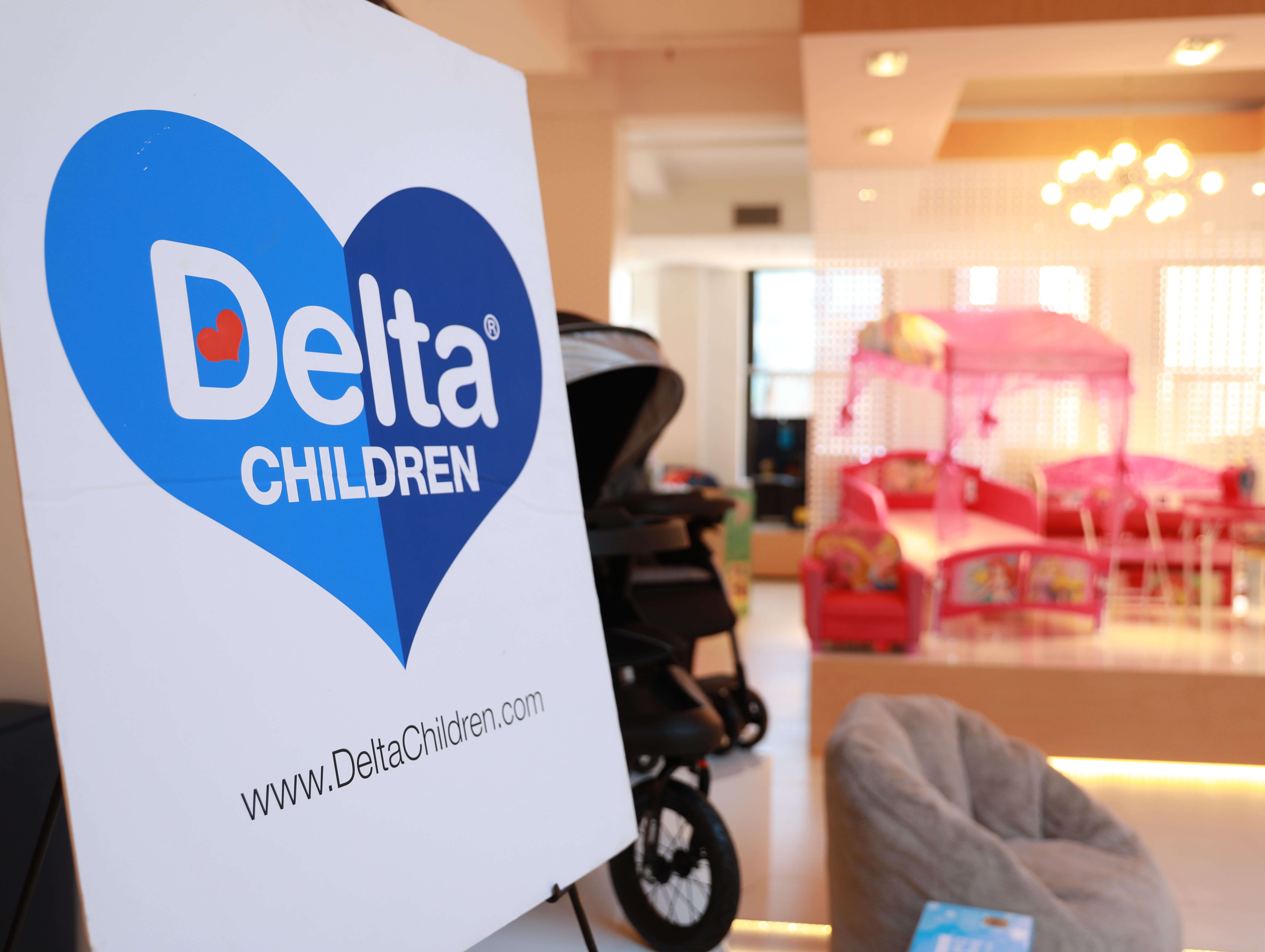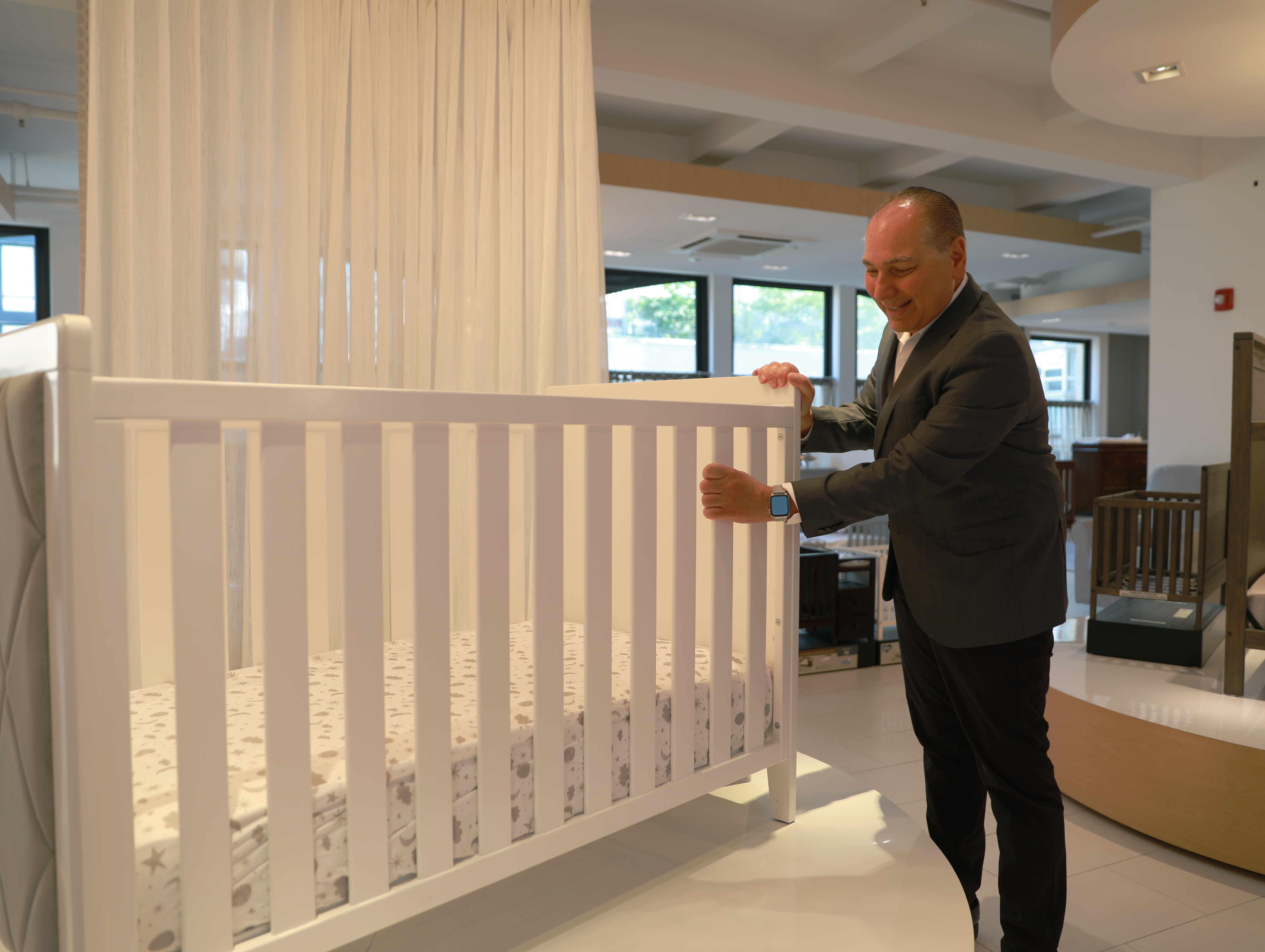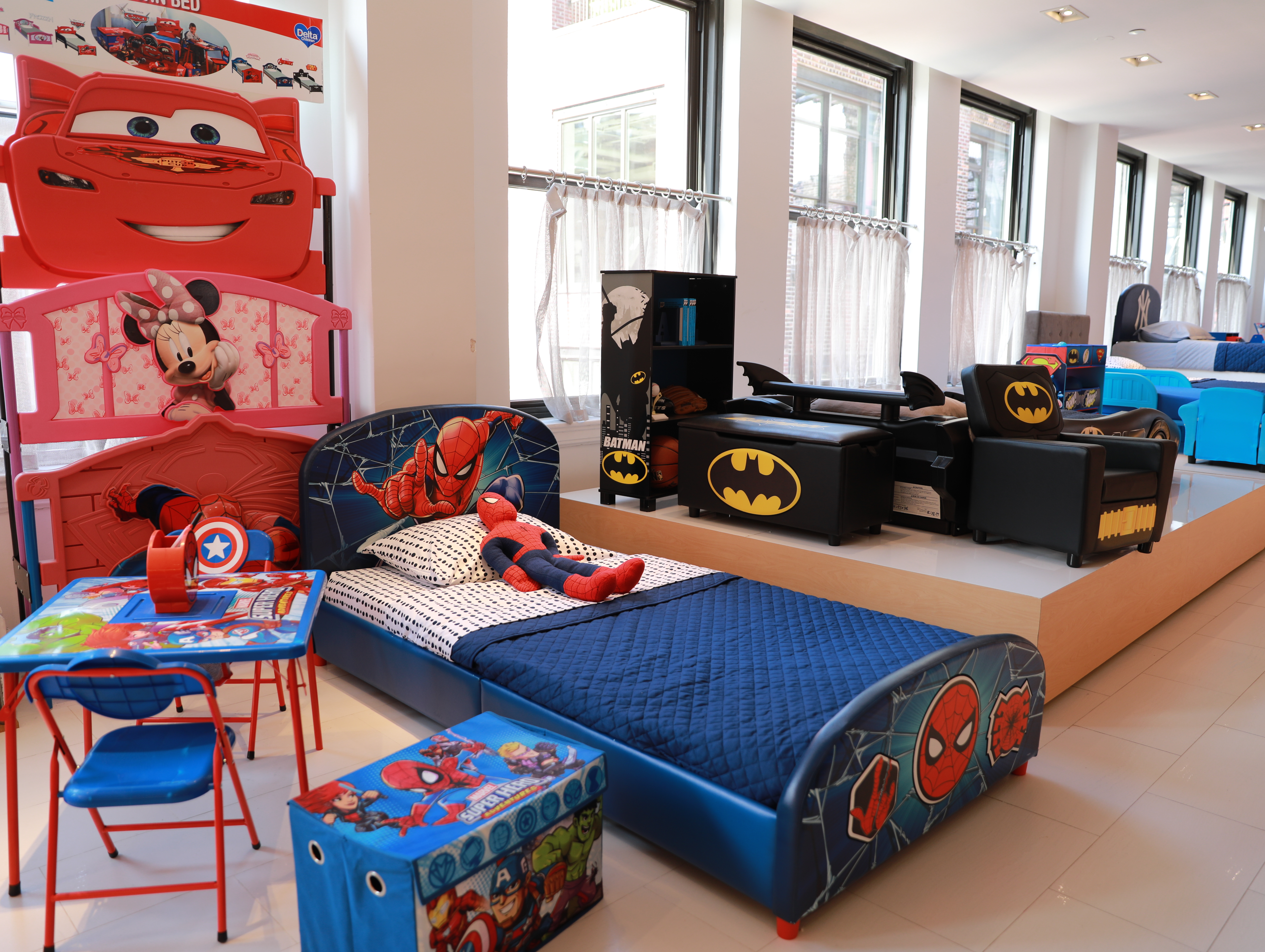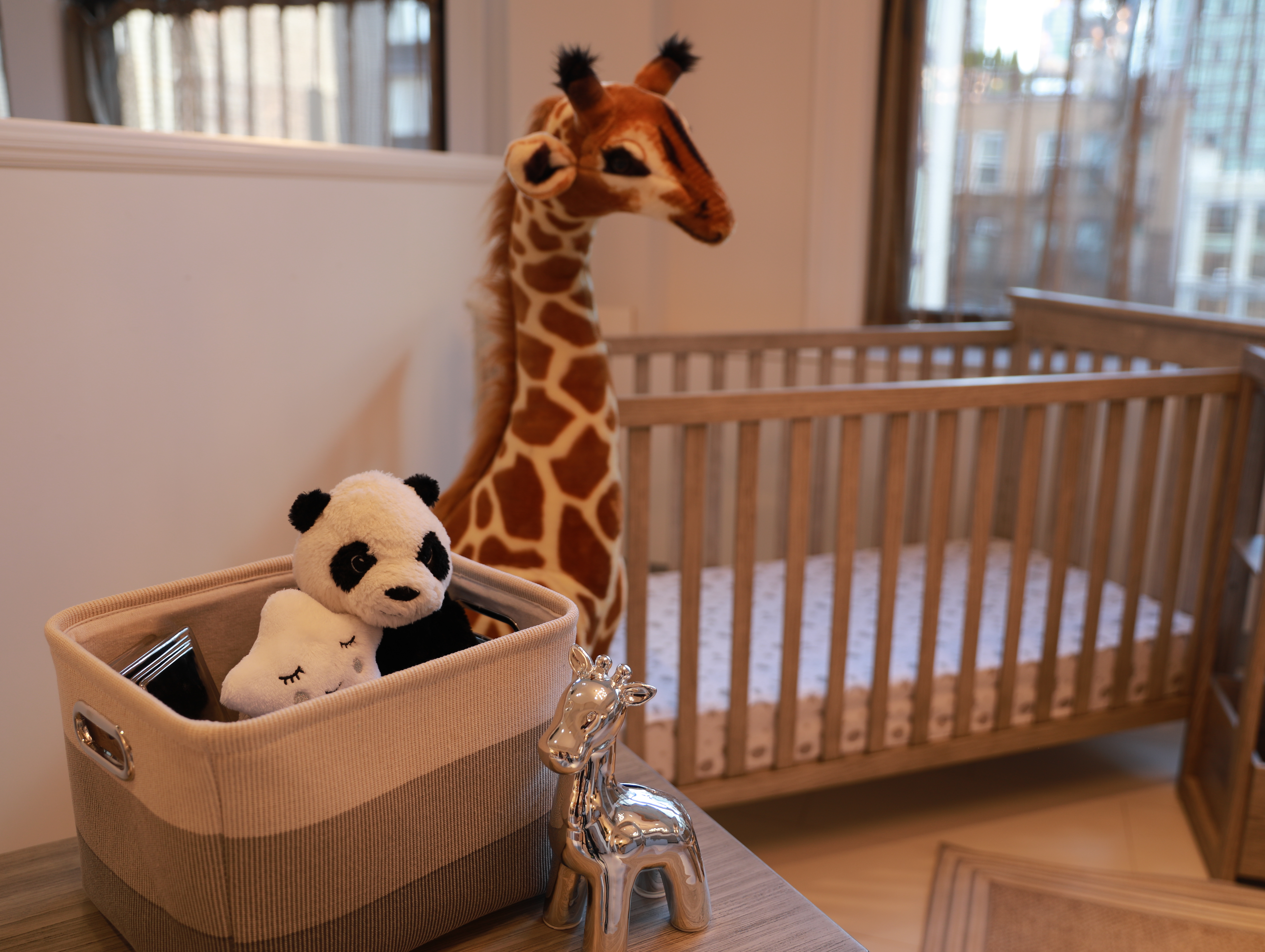With the price of children's products from China driven up by the additional tariffs, many new parents in the United States, especially those with relatively lower incomes, cannot even afford a new crib with acceptable quality, exposing their babies to potential dangers.
by Xinhua writers Chang Yuan, Zhang Mocheng
NEW YORK, Aug. 28 (Xinhua) -- The U.S. government is taking the joy of raising a new baby out of ordinary U.S. families by slapping multiple rounds of steep tariffs on Chinese imports.
With the price of children's products from China driven up by the additional tariffs, many new parents in the United States, especially those with relatively lower incomes, cannot even afford a new crib with acceptable quality, exposing their babies to potential dangers.
Price hikes of children's products due to tariffs are "likely to lead to an increase in infant and child deaths and injuries," warned Joseph Shamie, an industry insider with decades of experience in the juvenile furniture sector.

Photo taken on Aug. 22, 2019 shows the entrance to a showroom of Delta Children in New York, the United States. (Xinhua/Zhang Mocheng)
TARIFFS COULD KILL
Shamie serves as the president of Delta Children, a leading juvenile product company founded in New York's borough of Brooklyn by his parents in 1968.
Like most of its peers, the company manufactures most of its products outside the United States. "Approximately 80 percent of our product line is coming out of China," Shamie told Xinhua at the company's headquarters in downtown Manhattan during a recent interview.
The company now sells over 50 percent of cribs and children's beds, among other products, in the U.S. market, primarily to working-class families.
As many of the children's furniture are now subject to a tariff of 25 percent, a U.S. customer now "has to pay more money for a bassinet, a crib, a car seat, and soon a stroller or other products that are necessary to keep their children safe," said Shamie.
Instead of buying a new crib, some parents may choose to get a "hand-me-down" one, which "doesn't meet the current standards" and "could have a broken side or broken part," noted Shamie.
"How could a crib maintain good quality if it's often taken in and out of the storage room? Its components may have been deteriorated with age or while in storage," he said.
Simply a loose screw could cause the fall and death of an over-excited toddler who keeps shaking the sides of the crib while the parents are sleeping in another room, said Shamie, standing in front of a wooden crib in Delta's showroom.

Joseph Shamie, president of Delta Children, introduces a crib on display in New York, the United States, Aug. 22, 2019. (Xinhua/Zhang Mocheng)
Even worse, some parents would choose to sleep at the same bed with their baby in a bid to spare the expense of a crib, a practice that "has led to numerous deaths."
According to the American Academy of Pediatrics, bed-sharing with new babies could put them at risk of accidental suffocation, accidental strangulation and other sleep-related deaths. About 3,700 babies in the United States die each year from sleep-related causes.
To keep providing high-quality products with a relatively low price for U.S. families, Delta has "eaten a good portion of the tariffs" itself as it happens to be a financially-strong company, said Shamie, but "not everybody can bite the bullet."
Those who cannot, he said, may choose to make cheaper products, such as taking something out of the product, so as to keep a low cost, which could eventually hurt the babies.
That costs something of the parents that could not be measured by money, the businessman said.
MOVING OUT OF CHINA SIMPLY UNREALISTIC
Shamie's father was among the first Americans who went to China to do business in the early 1970s.

Joseph Shamie, president of Delta Children, speaks during an interview with Xinhua in New York, the United States, Aug. 22, 2019. (Xinhua/Zhang Mocheng)
Apart from production lines in cities like Qingdao, Shanghai and Shenzhen, Delta has also established several test facilities around China with over 100 well-trained employees for testing out the products and making sure they are safe for any child to sleep, said the second-generation entrepreneur.
"Not every company does that, and not every country is capable of doing that, (but) China is capable," he said.
Last week, U.S. President Donald Trump tweeted about his intention to force all U.S. companies to leave China. However, at least for Delta, it seems to be the worst possible option.
"We have a long history with China," said Shamie. "We took decades to build our relationship, which I had to build out infrastructure of not only the ability to produce, but the ability to test. These things don't happen overnight."
Besides, as Shamie stated in late June at the section 301 tariffs hearing held by the U.S. Trade Representatives, no one in the United States wants to manufacture a crib, which involves wood, steel, plastic, painting and many other things, but could sell for as low as 50 bucks. This industry is very "cost prohibitive," he said.
Worse still, the uncertainty brought about by the trade war further complicates businesses' plans and hinders them from making investment decisions.
"Is the tariff coming in? Is the tariff not coming in? One day it's on; one day it's off; one day it's maybe," Shamie complained. "How does a businessman go and invest millions of dollars in another country when he doesn't know what is the right thing to do? ... How does a businessman price goods when he doesn't know what the cost is going to be?"
"There's so much uncertainty going on in the marketplace. And that is the worst thing you can do for business," he stressed.

Cribs are displayed at a showroom of Delta Children in New York, the United States, Aug. 22, 2019. (Xinhua/Zhang Mocheng)
STOP HARMING YOUNG FAMILIES
Delta Children is not the only juvenile product company that has voiced its opposition to the tariffs already imposed or to be imposed on Chinese goods.
During the latest section 301 tariffs hearing held in June in Washington, D.C., at least five brands from across the country pleaded with the government to solve its trade war with China in a way that does not penalize small families.

A crib is on display at a showroom of Delta Children in New York, the United States, Aug. 22, 2019. (Xinhua/Zhang Mocheng)
"Raising children is a complex and costly endeavor. Reducing the costs and increasing the affordability of safe baby products must remain a priority for everyone," said Bradley Mattarocci, vice president of Baby Trend, a California-based manufacturer of car seats, play yards and strollers, on the first day of the hearing.
"50 percent of our consumers have household incomes less than 50,000 U.S. dollars a year, and about 20 percent have household incomes less than 25,000 a year," said Russ Torres with the North Carolina-based Graco Children's Products, a big name in juvenile gear, at the same panel.
"We are deeply concerned that imposing the tariffs will add stress to many families as they agonize over choices to balance tight budget while ensuring the safety of their children," Torres added.
In Shamie's opinion, every one falls victim to a trade war, and new parents with limited incomes are among the hardest hit.
"People that are hurting the most are the average family," he told Xinhua. "Having a new child means an added expense in general, and now that expense is even higher than that it was before. How fair is that to them?"
(Viedo reporters: Chang Yuan, Zhang Mocheng; Video editor: Luo Hui)



